
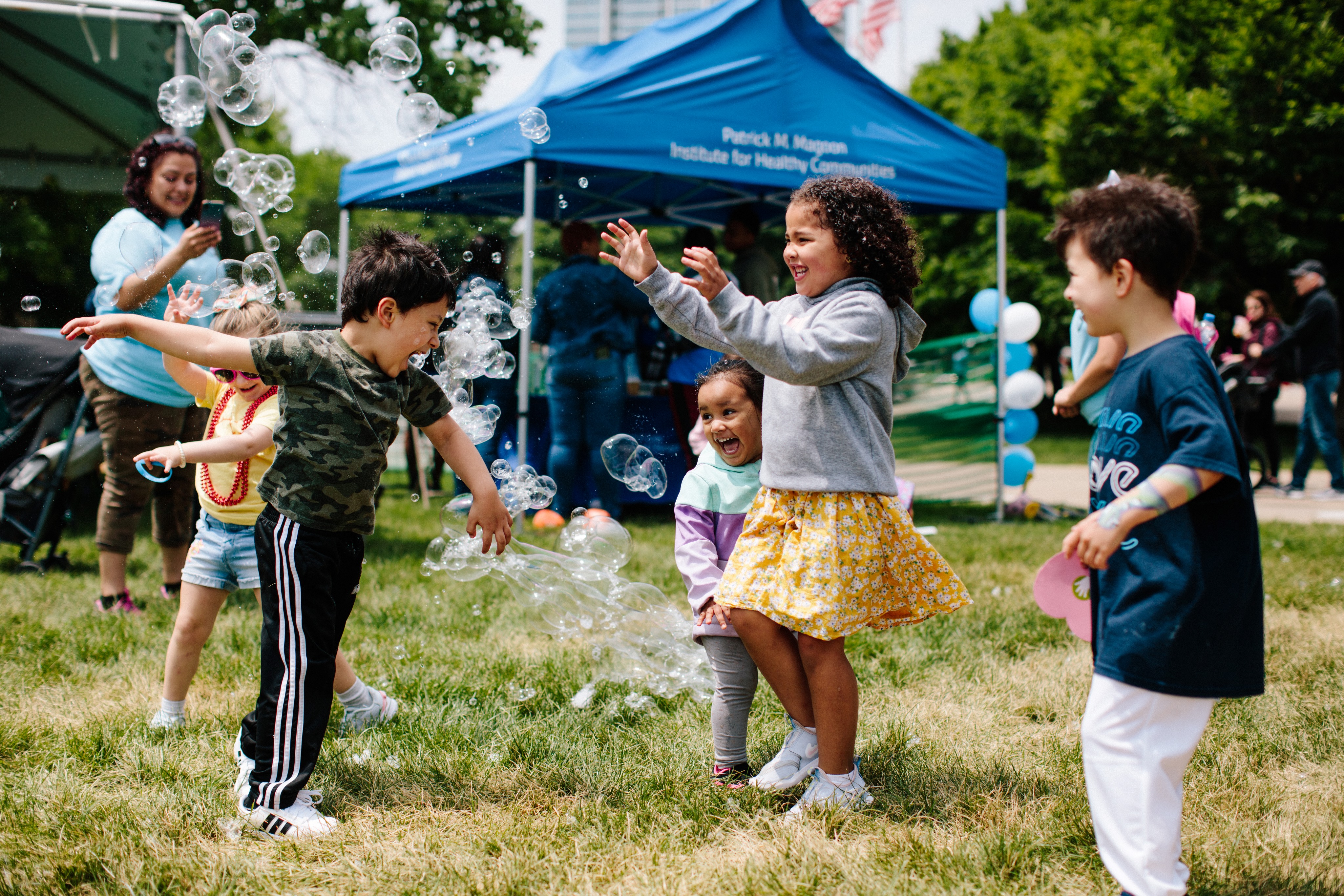
For a Healthy Today and Healthier Tomorrows
2023 Annual Report
With Gratitude
Health disparities have a profound impact on the well-being of children, youth and families in our community. Through the Patrick M. Magoon Institute for Healthy Communities and with the help of philanthropic partners like you, Lurie Children’s is addressing these inequities head-on.
With your support, we are deepening relationships with communities to bring Lurie Children’s expert care directly to children, youth and families. We are launching new programs and are reaching more individuals across Chicago. And the Magoon Institute has emerged as the expert pediatric voice in the city, helping to bring together key stakeholders and develop solutions to advance health equity.
Our work is only possible because of your generosity. We deeply value your shared dedication to improving the health and well-being of children in Chicago and beyond.
Deepening Our Relationships
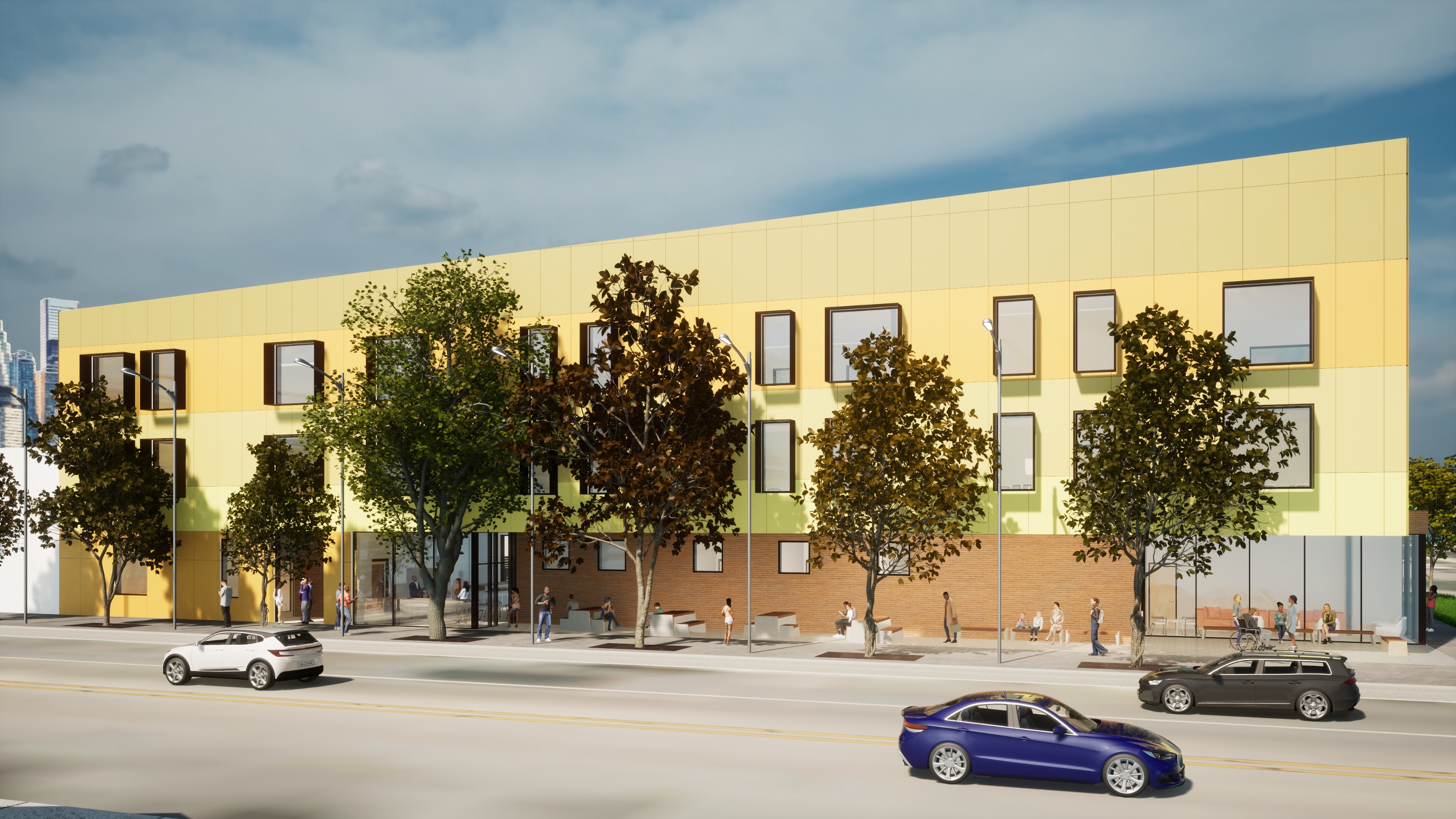
Austin Community Health Hub
Created in partnership with the Austin community, the Austin Community Health Hub will help connect children, youth and families to essential healthcare and community services, fostering wellness and helping to spur economic development in this neighborhood. Co-developed with Stone Community Development Corporation (Stone CDC), a trusted organization in Austin, the facility will help advance health equity on Chicago’s West Side. Over the past year, with community input, plans for the facility, services and programs have taken shape. Lurie Children’s will provide clinical care in adolescent medicine, cardiology, asthma, sickle cell disease, behavioral health and more. The site will also serve as the West Side hub for Magoon Institute programs, including workforce development; maternal and child health programming; food, activity and nutrition initiatives; and violence and injury prevention. Construction is tentatively scheduled to begin in summer 2024.
Schreiber Family Center for Early Childhood Health and Wellness
Launched this year with a generous $25 million gift from John and Kathleen Schreiber, the Schreiber Family Center for Early Childhood Health and Wellness amplifies the Magoon Institute’s early childhood work. The time from before birth to age five is critical for a child’s development. All parents want the best for their children, but historic disinvestment and racism have left many families without adequate resources at home, at school and in the community. Without intervention, the health and racial inequities present at birth can have a life-long impact that can continue into future generations.
Schreiber Family Center initiatives promote and protect safe, stable and nurturing relationships during early childhood to help break the cycle of health disparities. Some of our projects over the past year include:
- The Food, Activity and Nutrition Initiatives team updated and translated into Spanish our fiveSMART curriculum for pregnant people, and parents of infants and toddlers. The curriculum includes education, activities and discussion topics on sleep, meals and snacks, physical activity, role modeling and responsiveness and things to avoid (SMART).
- To create supportive early childhood environments, the Center for Childhood Resilience (CCR) is expanding its Ready to Learn through Relationships (RLR) Trauma Informed Framework and Toolkit. RLR educates early childhood educators and staff about trauma and provides strategies for classroom implementation of trauma-responsive and healing-centered care. The revised toolkit incorporates a racial equity lens, and CCR is working with the Office of Head Start to disseminate it broadly.
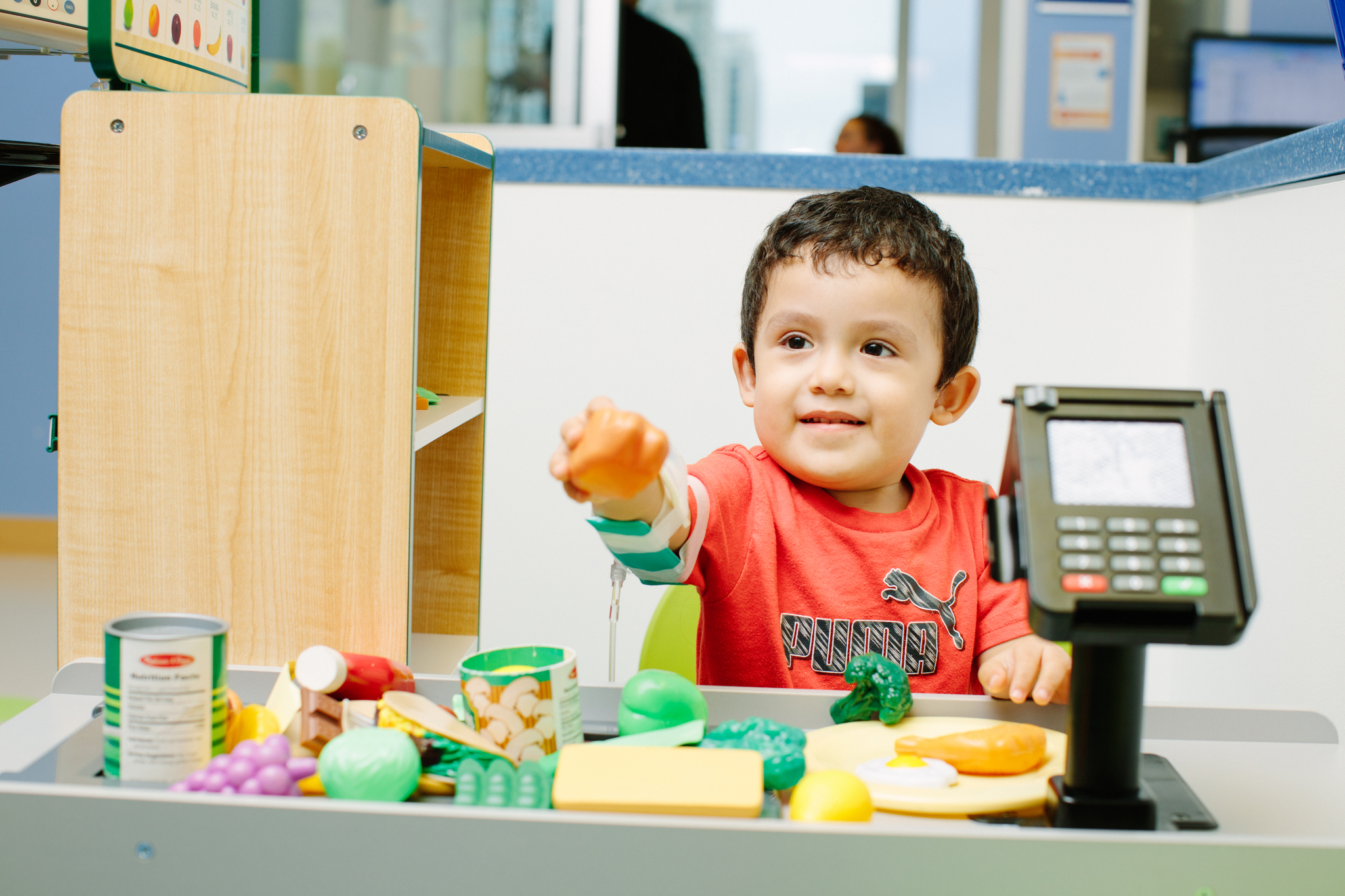
Expanding Our Reach
In August we celebrated the arrival of our new mobile health unit, which expands our capacity to serve the community. The previous mobile unit was a retrofitted ambulance with very limited space. The new unit has running water, bathroom facilities, a wheelchair ramp, internet access, multiple clinic rooms and other enhanced features.
The larger unit will also allow us to provide a broader range of care. Numerous hospital divisions are making plans to provide services through the Mobile Health program, including a neonatal follow up clinic starting this month in Belmont Cragin, expanded asthma services on Chicago’s South Side and additional services focused on adolescents.
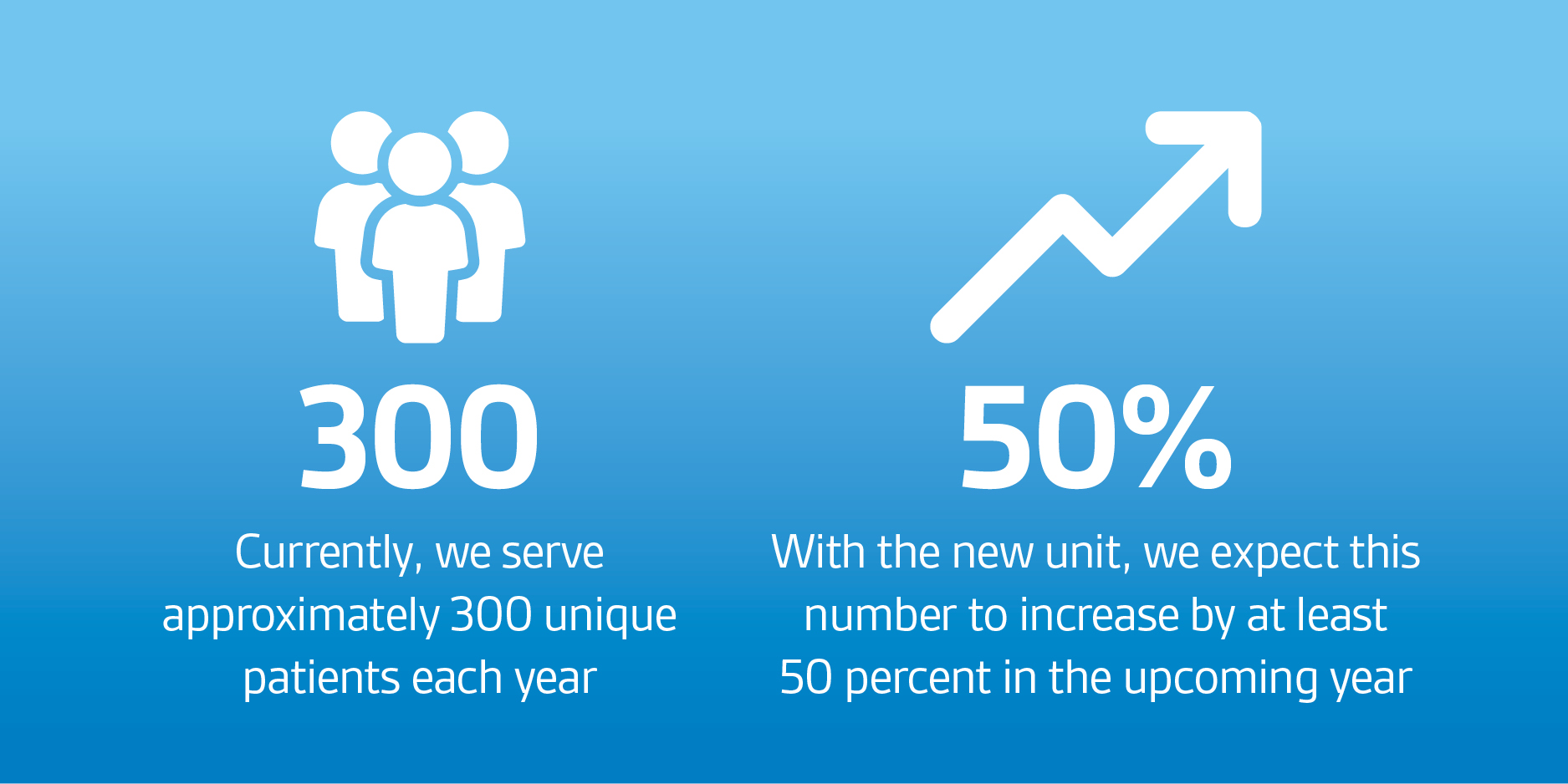
Increasing Our Impact
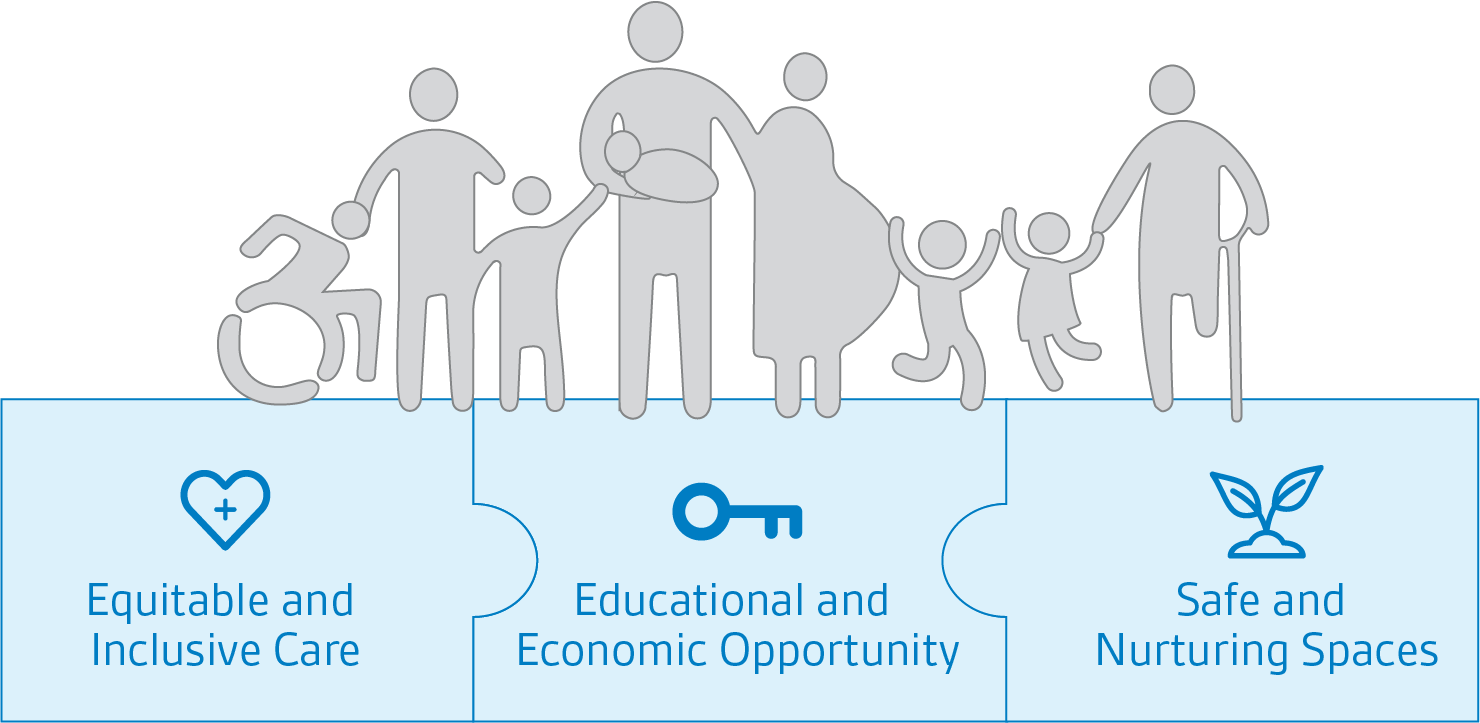
The hospital’s comprehensive Community Health Needs Assessment (CHNA), which gathers quantitative and qualitative data from the community and our partners, informs our community health efforts in three critical domains: Equitable and Inclusive Care, Educational and Economic Opportunity, and Safe and Nurturing Spaces. We have advanced our goals through the following efforts.
Equitable and Inclusive Care
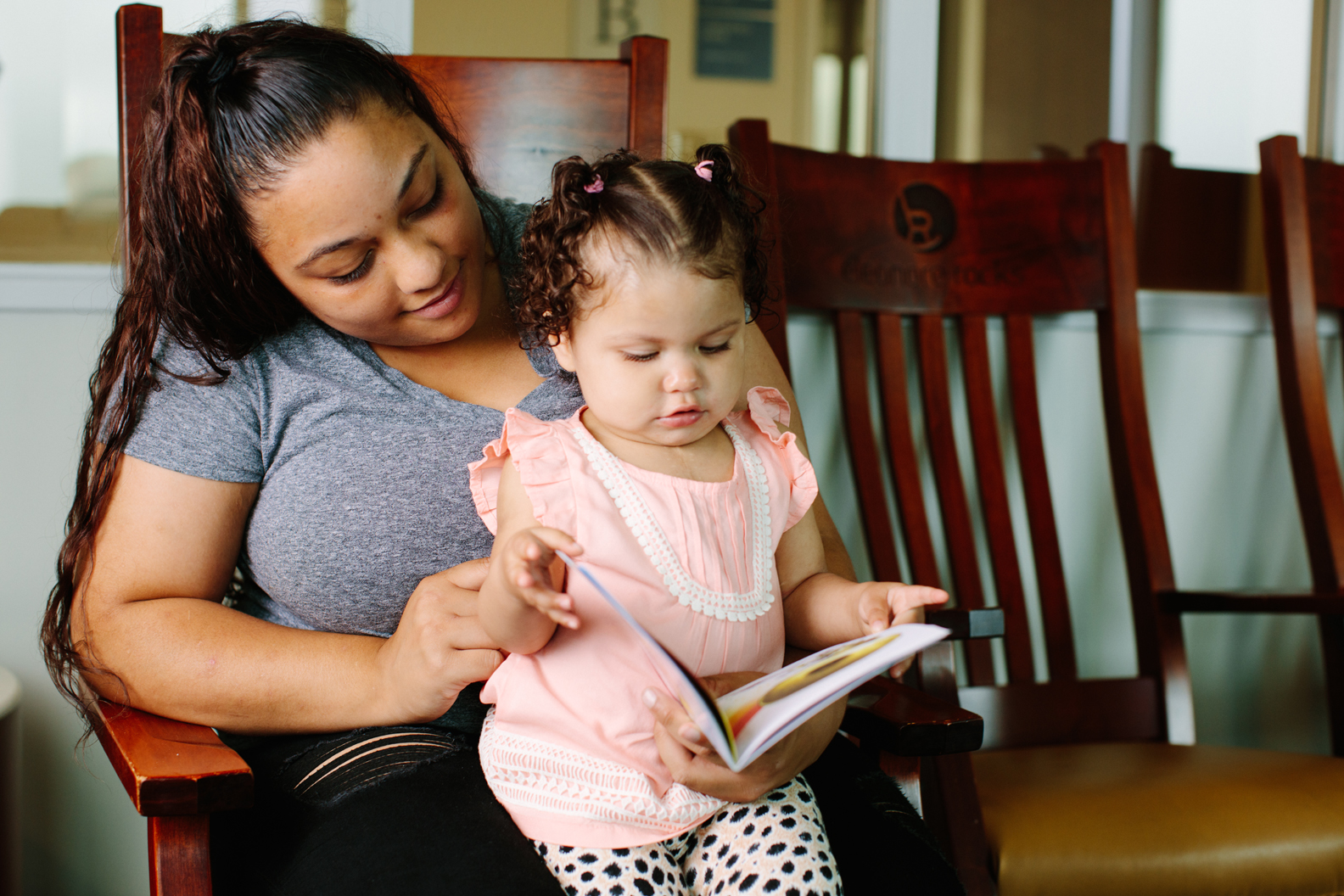
Health equity is only possible when communities have access to the conditions and resources that enable them to live their healthiest lives. Our maternal and child health initiatives link individuals to services to support them during pregnancy and the first year of life.
- 198 pregnant or parenting individuals were referred to Connect Home Visiting Chicago for home visiting services in their community. Connect Home Visiting Chicago is now the largest intake system for home visiting in the state.
- Together with West Side United, we launched West Side Healthy Parents & Babies with the goal of supporting every family on the West Side of Chicago, from pregnancy to one year postpartum.
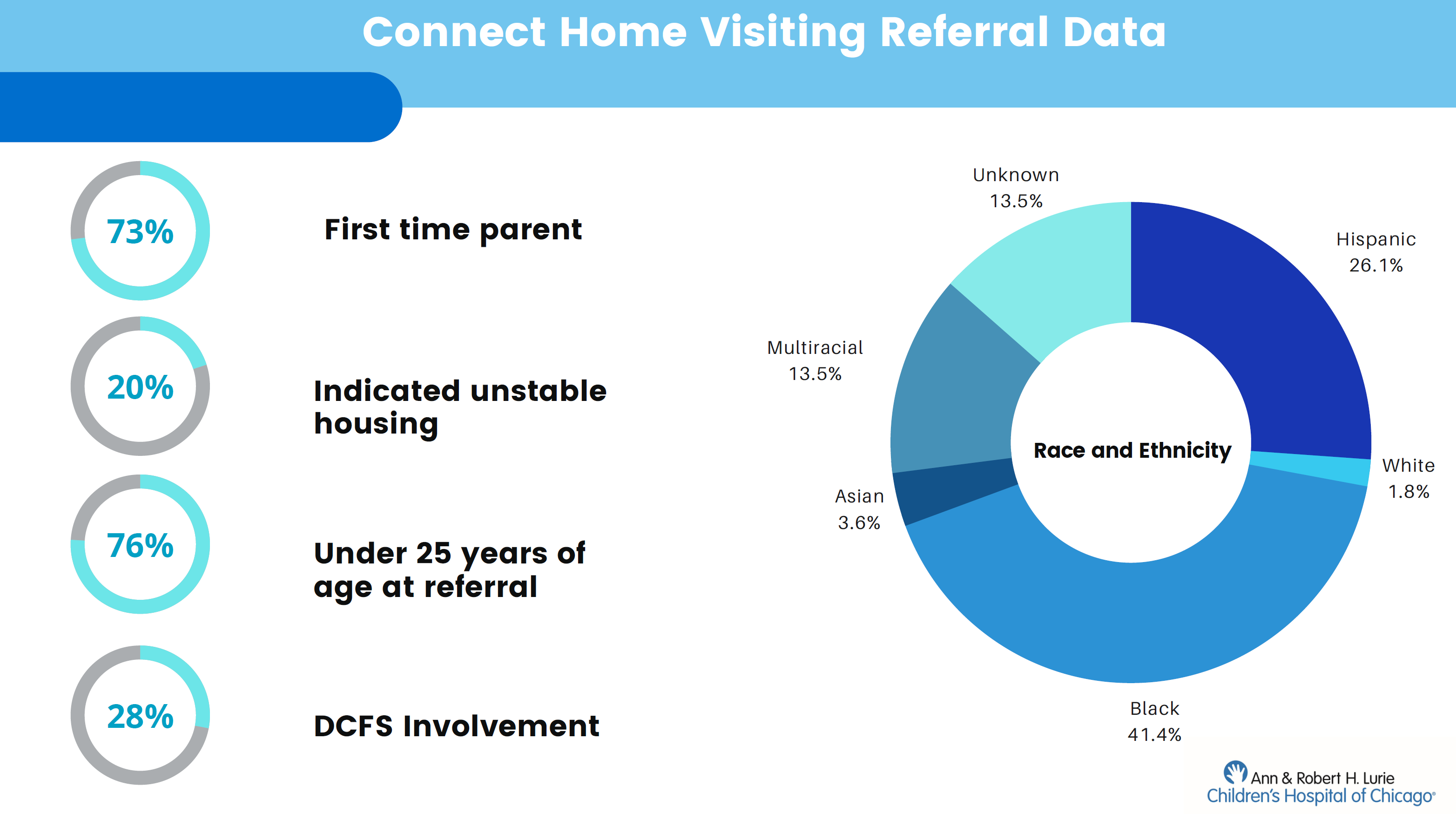
Educational and Economic Opportunity
Access to educational and economic opportunities help infants, children, youth and their families and communities thrive. Our Mentorship & Workforce Development program offers internships, externships, career coaching, and more for young people from grades 6 through 12 as well as adults, including alumni and their parents.
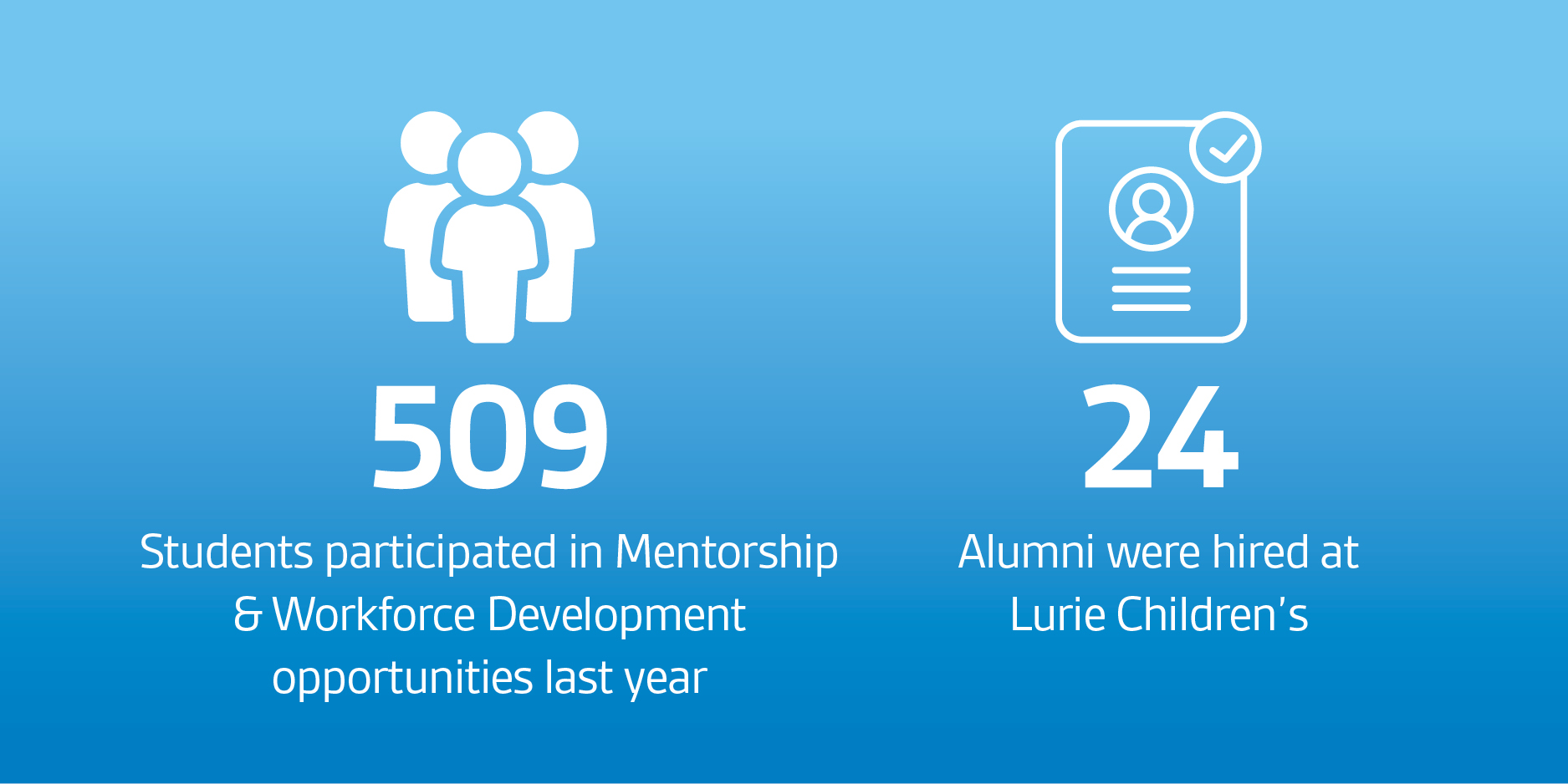
Safe and Nurturing Spaces
From violence prevention to home safety, our programs provide interventions to cultivate safe, supportive and nurturing physical and social environments for youth where they live, learn and play. Our Injury Prevention initiatives help ensure that children are safe at home while the Substance Use and Prevention Program (SUPP), led by the Potocsnak Family Division of Adolescent and Young Adult Medicine, engages in harm reduction efforts to prevent opioid overdoses in teens and young adults.
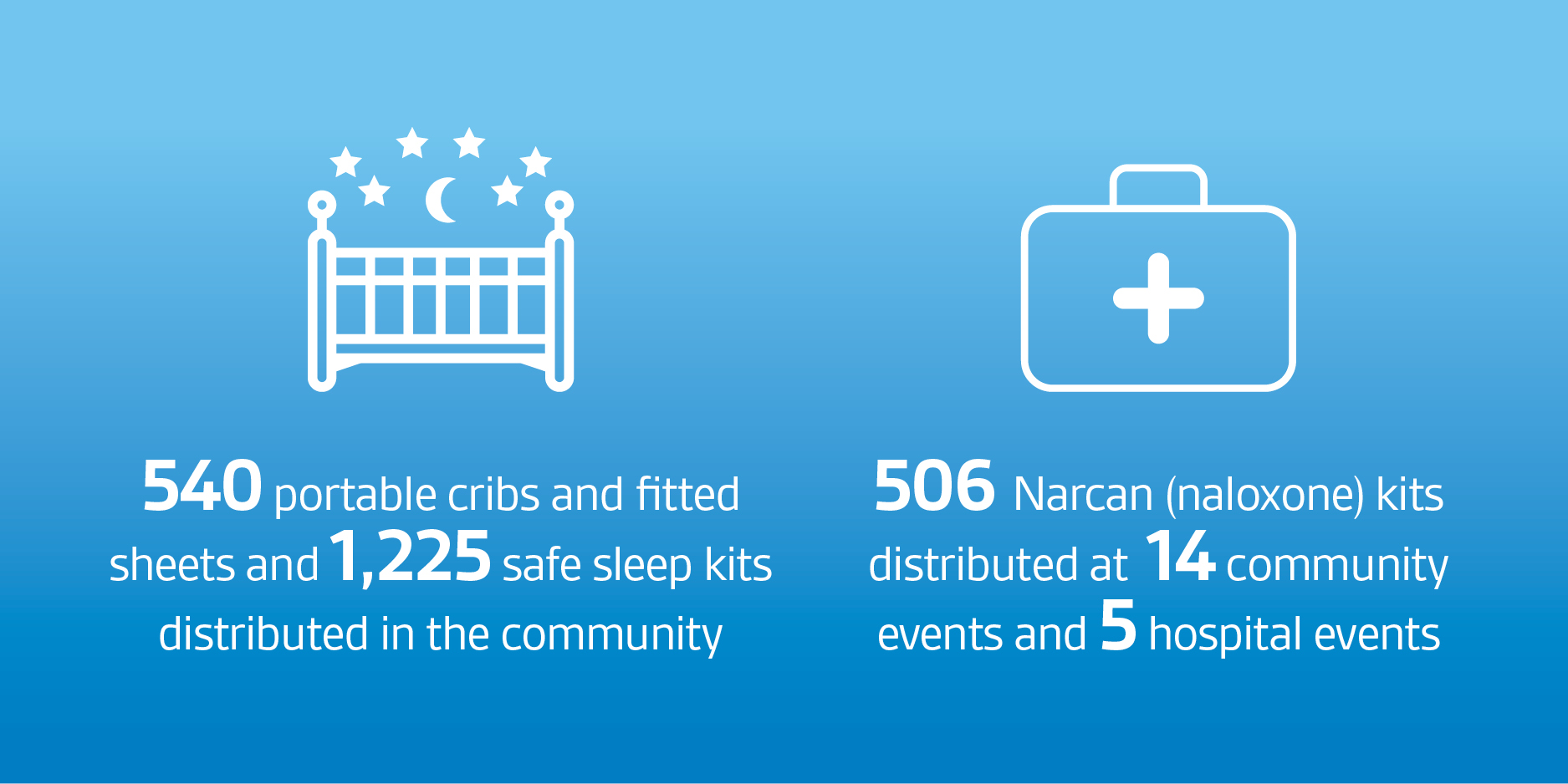
Strengthening Chicago’s Youth is expanding its Juvenile Justice Collaborative (JJC) project with the support of a $6.45 million American Rescue Plan Act (ARPA) grant awarded by the Cook County Office of the Chief Judge. The JJC helps transform the lives of youth like David (name changed for privacy):
David was referred to the JJC and shared he was facing a fateful decision—whether or not to join a gang. He was not working or attending school and felt he had few options. A care coordinator connected him with mentoring services offered by BUILD, a nationally respected youth development organization.
Every week, a mentor nurtured David’s self-confidence, focusing on the positive strides he was making. Through the network provided by the program, David found a job and received help with transportation to school. Then, tragedy struck—his family’s home was targeted in a violent shooting. A situation that could have sent him spiraling instead became a turning point. He reached out to the JJC for support and received a laptop so he could finish school remotely. Care coordinators helped establish a safety plan, including relocation to keep him safe.
Today, this resilient young man remains not just hopeful, but empowered—working, learning and looking forward to a brighter future.
Leading the Way
The Magoon Institute shares our pediatric and public health expertise throughout Chicago to build better systems that address the most pressing child health issues in the community.
We authored a State of Child and Adolescent Health report for newly-elected Chicago Mayor Brandon Johnson and his transition team to brief them on key child health challenges and ways Lurie Children's experts can partner with the new administration.
Our Social Influencers of Child Health Summit brought together over 160 community partners representing a variety of sectors from across Chicago to build connections, align approaches and share resources around child poverty, mental health and trauma, youth development and supporting young children and families.